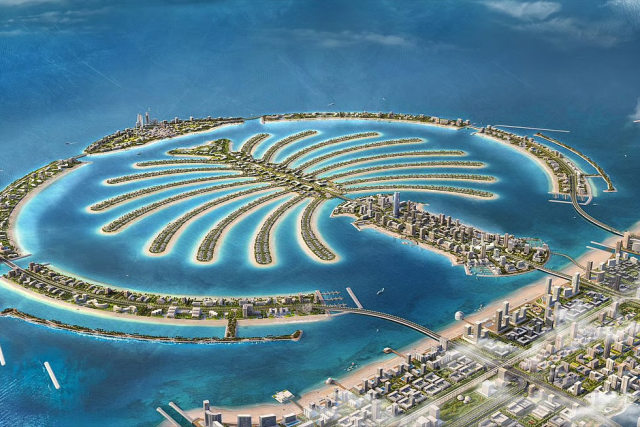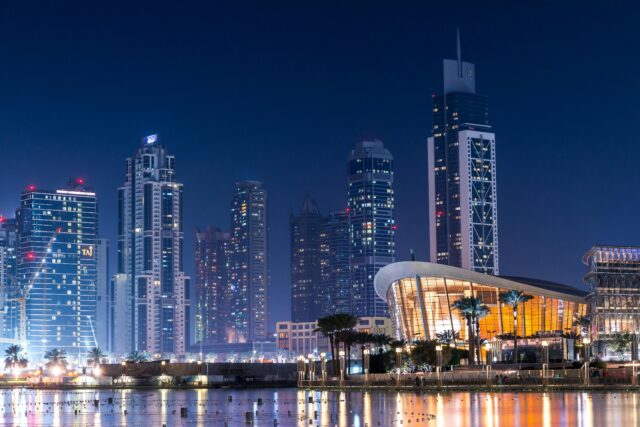
In recent years, the United Arab Emirates has emerged as a global hotspot for real‑estate investment, not least because of a rapidly growing trend: fractional property ownership. And at the heart of this phenomenon are millennials—entrepreneurs, professionals, and expats—who are changing what it means to own real estate in Dubai, Abu Dhabi, and beyond. What once seemed a niche model is becoming mainstream, driven by changing financial priorities, innovative platforms, and regulatory shifts.
What Is Fractional Property Ownership?

Fractional ownership means buying a share of a property rather than the entire unit. Investors collectively own a portion, share in rental income, and benefit from asset appreciation, while management, maintenance, and overall overheads are handled by specialized platforms. Think of it as real estate’s version of co‑investing: more accessible, lower entry barriers, and more flexible.
This model is often paired with digital services, sometimes tokenization (blockchain‑based ownership of shares), to simplify logistics and legalities for investors across different geographies.
The Rise of Millennials in UAE Real Estate
While older generations once dominated property investment, millennials (roughly ages 26–45) are now a major force. According to a recent report from Prypco Blocks, about 40% of fractional property investors in the UAE are aged 36‑45, and 27% are aged 26‑35. This means over two‑thirds of fractional owners are millennials or entering into that cohort.
This shift is part of a broader change: the average age of off‑plan property buyers has dropped significantly over the past few years. Dubai’s off‑plan sector, in particular, is seeing younger buyer participation than ever.
Why Millennials Are Embracing Fractional Ownership

What is driving this trend? A number of interlocking factors make fractional property ownership particularly attractive to millennials:
- Lower Cost of Entry
Buying whole properties in prime UAE locations requires large down payments, or even full payments in certain cases. Fractional ownership reduces that barrier, allowing entry with much smaller capital outlay. For many millennials, especially younger professionals or those relocating, this makes property investment more feasible. - Desire for Flexibility & Liquidity
Millennials tend to prioritise flexibility: they move more, change jobs, might not plan to live in the UAE permanently, or want to rotate between properties. A fractional model allows them to own without long‑term ownership commitment, and to earn rental income in the meantime. - Tech & Digital Platforms
The rise of tech‑enabled property investment platforms, decentralised ownership models, online contracting, and remote management make fractional ownership much easier than it was a few years ago. - Strong Returns & Incentives
Attractive rental yields (often in the 5‑10% range depending on location) plus capital appreciation are making fractional investments competitive. Some platforms are offering rental guarantees or upfront returns. Also, reductions in fees, lowered entry fees, flexible payment plans enhance appeal. - Regulatory & Government‑Backed Support
Regulators and developers are increasingly supportive. Initiatives like tokenization (allowing real property ownership via digital tokens) are being explored, as are more investor‑friendly rules. These create legitimacy, transparency, and reduced risk. - Lifestyle & Demographic Factors
High rental costs, a desire for passive income, global mobility, and sometimes uncertain economic climates drive millennials to see real estate not just as shelter but also as an investment. Many are expatriates investing from abroad.
Nationalities & Investor Mix
The fractional ownership market in the UAE is diverse. Recent data from Prypco Blocks shows:
- Indian nationals make up 37% of fractional property owners.
- Next are Emirati nationals (~14%), Pakistani (~8%), with smaller but growing shares from Egyptians, Lebanese, Jordanians, British, etc.
This reflects the UAE’s expat‑dominated population and its appeal as a place to park capital, build wealth, or secure alternative income streams.
Key Platforms & Innovations
Some of the platforms leading the fractional ownership trend include Prypco Blocks, which regulates via the Dubai Financial Services Authority. They have recently introduced some incentives:
- Upfront rental guarantee of ~5% annually, credited early.
- Reduction in entry and platform fees to improve investor returns.
Also, the government and regulatory authorities are exploring or implementing tokenization of real estate assets — converting property shares into digital tokens — which could lower barriers further and increase liquidity.
Risks & Considerations

Of course, fractional ownership isn’t without its challenges. Some things to watch:
- Liquidity: While fractional models make entry easier, exiting (selling your share) may be more complex or slower than selling a whole property.
- Management & Oversight: Since many co‑owners won’t be hands‑on, the quality of property management matters. Maintenance costs, management fees, upkeep, and how decisions are made can affect returns.
- Regulatory and Legal Clarity: Fractional ownership is relatively new in many jurisdictions. Legal rights, ownership documentation, and governance structures must be clear. Tokenisation introduces additional considerations (e.g. how tokens map to physical property rights).
- Market Risk: Real estate always carries risk—price downturns, oversupply, changes in regulations (e.g. tax, visa changes), macroeconomic shocks. Fractional ownership reduces entry cost but does not eliminate these risks.
What’s Next: Looking Ahead
The trend seems likely to accelerate. Some possible future developments:
- Greater tokenization and blockchain‑led transparency. If platforms and regulators work well together, this could revolutionize how property is owned, traded, and valued.
- More specialized fractional platforms targeting niches—luxury assets, holiday homes, coastal resorts, even eco or sustainable properties.
- Hybrid ownership/use models, where investors get personal use of the property (e.g. assigned weeks) plus rental income—especially in holiday or resort‑style assets.
- Financing innovations, like micro‑mortgages, flexible payment schemes, and even peer‑to‑peer investment structures.
- Regulatory refinements, to protect both investors and platforms—clearer laws, protections for co‑owners, standardization of contracts, etc.
Conclusion
Millennials are no longer passive observers of the property markets; they’re actively reshaping them. In the UAE, fractional property ownership offers them an opportunity to join the real‑estate ladder with lower entry costs, more flexibility, and the potential for decent returns. With digital platforms, supportive regulation, and evolving investor preferences, what was once a fringe concept is becoming central to the future of real estate investment in the Emirates.
For millennials (and others) looking to invest more modestly, diversify risk, and own a piece of the property action without all the complications of full ownership, fractional models are proving to be an attractive, powerful alternative.





Leave a Reply